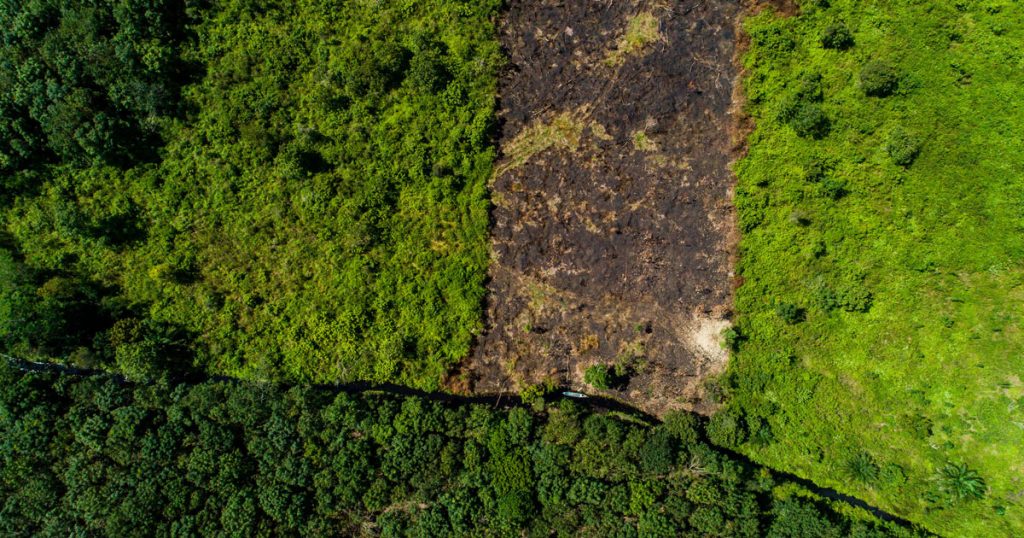
The proposal to take an additional year to implement the European Union’s Deforestation Regulation (EUDR) is an opportunity to address concerns raised by global partners and local stakeholders about the feasibility of compliance within the previous application deadline, particularly for stakeholders in partner countries.
CIFOR-ICRAF stands ready to work with the EU and other stakeholders to make the regulation more pragmatic and impactful, to foster a more sustainable balance between environmental protection, social fairness, and economic development. We underscore the global importance of timely action against deforestation and the importance of addressing forest risk commodities. While the EU’s global leadership on this question is highly welcome and swift action is needed more than ever, we see this delay as an opportunity to intensify constructive dialogue and refine the regulation, aiming for an effective approach to addressing supply-chain-related drivers of deforestation on a global scale.
We call for using this time to address critical gaps, including looking at the regulation’s implications for agroforestry. The diversity of coffee, cacao and rubber agroforestry systems is often not adequately captured within binary ‘forest/non-forest’ definitions or by maps of tree cover. These diverse agroforestry systems also contribute very differently to land-use dynamics, as some contribute to stabilizing (not amplifying) farm-forest frontiers. This can lead to errors in deforestation risk assessments, with unintended negative consequences for small-scale agroforestry producers and their landscapes.
While the regulation’s intent is commendable, there is a need for a much closer partnership between the EU and its partner countries. Actors in these partner countries – especially smallholder farmers and foresters – are already struggling to become compliance-ready under the current framework. This postponement offers a clear opportunity for the EU to take a much more inclusive, partner-oriented approach, ensuring that the voices of those in affected regions can be heard and that local realities are incorporated into the regulation.
As a science-based research for development organization, CIFOR-ICRAF can provide clear, evidence-based recommendations to help refine the regulation. Our research points to the need for a more nuanced understanding of forest systems and tree-based land use. We emphasize the importance of considering sustainable production landscapes, where agroforestry and mixed-use systems can contribute to solutions for both conservation and rural livelihoods.
Finally, although the postponement is an opportunity to address the abovementioned issues, we caution against prolonged inaction. The latest Forest Declaration Assessment concluded that commodity production remains the predominant driver of forest loss worldwide, adding to a range of drivers – such as speculation over land – as recent data for Indonesia suggests. The global deforestation crisis requires urgent measures, so the additional time must be used efficiently to strengthen the regulation’s effectiveness. To do this, the EU should engage relevant national authorities in both production and consumption countries to address the dimensions of forest zoning, traceability, legality and due diligence to create the right signals and incentives for compliance and trigger a shift in production landscapes towards sustainability.
For more information, please contact Azzura Lalani (a.lalani@cifor-icraf.org).
Related research:
- Leimona B, Mithöfer D, Wibawa G, van Noordwijk M. 2024. Sustainability certification: multiple values of nature coexist in value chain transformations toward a common but differentiated responsibility. Current Opinion in Environmental Sustainability 66:101393.
- van Noordwijk M, Dewi S, Minang PA, Harrison R, Leimona BA, Burgers P, Slingerland M, Sassen M, Watson C, Do HT and Sayer J. 2024. Definitional confusion and collateral damage due to new deforestation-free trade policies. Eartharxiv.
- Wardell DA, Piketty MG, Lescuyer G and Pacheco P. 2021. Reviewing initiatives to promote sustainable supply chains: The case of forest-risk commodities. Working Paper 8. Bogor, Indonesia: The CGIAR Research Program on Forests, Trees and Agroforestry (FTA).













